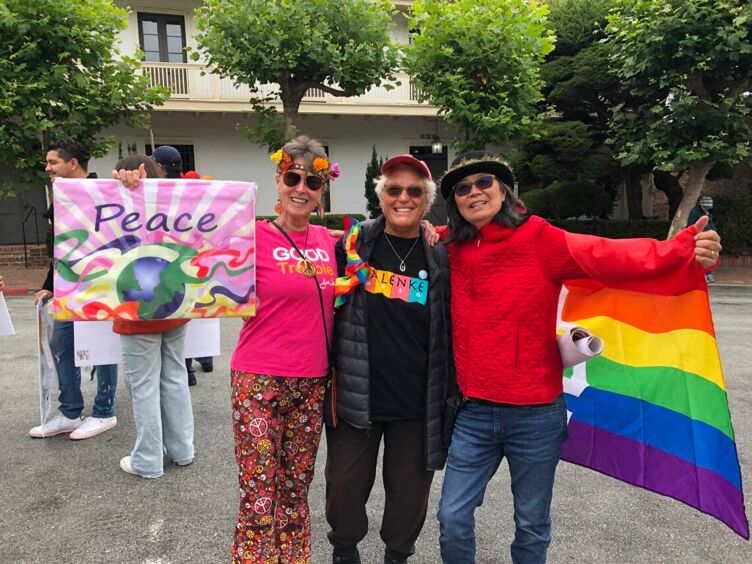A gay weed activist turned dispensary owner is ready to pass the torch
In 2021, Terrance Alan celebrated the long-anticipated opening of Flore, a well-appointed cannabis dispensary just across the street from the legendary and now-closed Castro hangout Cafe Flore, a victim of the COVID pandemic.
Thirty years earlier, at the height of another devastating health crisis, Alan was a regular at Cafe Flore with his husband, who was HIV positive and slowly succumbing to the effects of the disease.
“Cafe Flore was a stop on the underground railway line for experimental HIV drugs, and my husband and I would go and hang out,” Alan explained in an interview with Greenstate. “And certain people would come around, and we would learn about this, that, and the other thing. Of course, nothing worked, but at least we generated a little bit of hope every time we tried something.”
At the same time, cannabis was providing relief that conventional therapies couldn’t, and illicit grows were popping up all over San Francisco.
So Alan joined a wave of indoor growers dialing in lighting, temperature, humidity and everything else to make cannabis happy absent the sun. Over time, he helped cultivators across the city with set-ups for HIV-positive patients like his husband.
It wasn’t without risk.
One night, the couple woke up to a SWAT team at the door of their warehouse home in search of his grow room — he was arrested in possession of 120 plants.
According to Alan, he was accused of being a part of “Dennis Peron’s gay weed mafia.”
Peron was a legendary figure in both the LGBTQ+ and cannabis communities as an early proponent of medical cannabis in service of AIDS patients. He had arrived in San Francisco after serving in Vietnam and, as a “Yippie,” famously organized cannabis “smoke-ins” around the city. He was an early supporter of slain Supervisor Harvey Milk, and when the AIDS crisis struck he was selling illicit weed out of Castro Street storefronts.
The day after Alan’s arrest, Peron showed up at his door. A trip to City Hall to meet the power brokers who could help make legal weed in San Francisco and California a reality followed.
A few years later, Peron would author Proposition 215, which legalized medical cannabis in the state.
“Being around Dennis, you learned that you were either part of the solution or part of the problem,” Alan said.
Alan’s own evolution to activist occurred following another bust by SFPD. This time the cops showed up to a New Year’s Party Alan threw in 1995 in honor of his late husband.
“They were not happy,” Alan said of the cops called to one last bust just after four in the morning. “And they showed their unhappiness by taking my drag queen, transgender, and differently attired guests who were at my event and showing them off by making fun of them in front of the other police officers.”
Twenty-eight people were arrested and thrown in the drunk tank.
That confrontation with police, “over a memorial for my husband who just died,” was the moment that cemented Alan as an activist, he said.
One result was the San Francisco Late Night Coalition, which advocated for city entertainment and permit reform and led to the formation the San Francisco Entertainment Commission, now a crucial city regulatory body.
Another was Alan’s cannabis advocacy: he pushed for legalization in different forums and was serving as chair of the San Francisco State Cannabis Legalization Task Force when Prop 64, the initiative that legalized recreational cannabis in California, was passed in 2016.
His Castro cannabis outpost, Flore, soon followed, and the activist still has the small cultivators at the top of his mind.
“The deck is stacked against the small operator, the small farmer, and the legacy farmer,” Alan explained. “The consumers’ most important tool is their dollars. If they do not spend their dollars at stores on products that are well grown, well packaged, and well presented, then that part of the industry will not survive.”
From his perch in the purple-hued Flore storefront, Alan is now focused on passing his legacy — and Peron’s — onto the next generation of politically minded advocates.
“I’m at the stage where I would like to empower young activists,” Alan shared. “I’m not the activist anymore. I am the Dennis Peron knocking on your door, teaching you to be an activist.”
